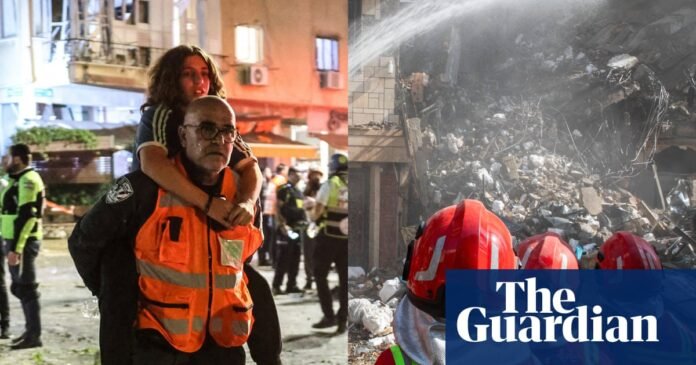In his inaugural address this January, Donald Trump declared that his proudest legacy would be that of “a peacemaker and unifier”, pledging that US power would “stop all wars and bring a new spirit of unity to a world that has been angry, violent, and totally unpredictable”.
Five months later, his second presidency is witnessing the spectacular unraveling of that lofty aspiration.
A president who vowed to end global conflicts – including one which he said he would resolve within his first 24 hours – has instead presided over their escalation – most recently the spiraling conflict between Israel and Iran.
The timeline of the latest conflict resuggests a stark disconnect between Trump’s aspirations and reality: the wave of Israeli airstrikes came just hours afterTrump urged Israel not to attack Iran.
Marco Rubio, Trump’s secretary of state, took pains to describe the Israeli attack as “unilateral”, stressing that the US was “not involved in strikes against Iran” – only for Trump to then insist he had been well informed of Israel’s plans – and warn that further attacks would be “even more brutal”.
Trump’s Middle East envoy Steve Witkoff, who has emerged as Trump’s primary diplomatic negotiator in the Middle East and Ukraine, still reportedly plans to go to Oman this weekend for talks on Tehran’s nuclear program, but it appeared unlikely the Iranians would attend.
Trump’s muddled peace agenda was already disarray long before Thursday’s attacks.
The Gaza ceasefire his administration helped broker collapsed within weeks, with Israel resuming massive bombardments and imposing a three-month total blockade on humanitarian aid to the territory, where the death toll has now surpassed at least 55,000.
In Ukraine – a conflict Trump once bragged he would end on his first day back in office – Russian forces have pressed ahead with a summer offensive, entering the Dnipropetrovsk region for the first time in three years and accumulating more forces – evidence that Putin has no interest in Trump’s peace overtures and intends to expand the war further.
Meanwhile, Trump’s abrupt announcement of a ceasefire between India and Pakistan was met with fury in New Delhi, where officials denied his claims of brokering the deal.
And while Defense Secretary Pete Hegseth acknowledged to Congress that the Pentagon has developed contingency plans to seize Greenland and Panama militarily, it’s unclear how territorial conquest fits into Trump’s definition of peacemaking.
His first term ended no wars, nearly sparked conflict with Iran, and saw his signature “peace” achievement – the Abraham accords – normalize relations between Israel and countries that weren’t fighting it anyway.
Part of Trump’s appeal to voters was precisely a promise to avoid foreign entanglements. In the stands at the inauguration viewing party, supporters told the Guardian how they valued his restraint in military deployment and favored his America-first approach that prioritized domestic concerns over international aid and intervention. And there is a an argument that for Trump peace is not an absence of conflict but rather Washington’s distance from it.
There is one potentially optimistic interpretation for the latest strikes in Iran. Alex Vatanka, the Iran director from the Middle East Institute in Washington, suggested that Israel’s attack could be a calculated gamble to shock Iran into serious negotiations. The theory holds that Israel convinced Trump to allow limited strikes that would pressure Tehran without triggering regime change, essentially using military action to restart stalled diplomacy. On Friday Trump suggested that the strike on Iran might have even improved the chances of a nuclear agreement.
“This is not likely to bring Iran back to the negotiating table,” said Andrew Borene, executive director of global security at Flashpoint and a former staff officer at the US’s office of the director of national intelligence. “It marks the opening of yet another rapidly expanding flashpoint within the global context of a new hybrid cold war, one that will be fought both on the ground and in the darkest corners of the web.”
Whether this strategy succeeds depends entirely on Iran’s response. The regime could either return to negotiations chastened, or abandon diplomacy altogether and pursue nuclear weapons more aggressively. Early indicators suggest Tehran may not be in a conciliatory mood after having its facilities bombed and leaders killed.
But even if the more optimistic readings prove correct, it does not change the broader reality: every major conflict Trump inherited or promised to resolve has intensified on his watch.
Trump promised to be a peacemaker. Instead, he’s managing multiple wars while his diplomatic initiatives collapse in real time. From Gaza to Ukraine to Iran, the world appears more volatile and dangerous than when he took his oath five months ago.





